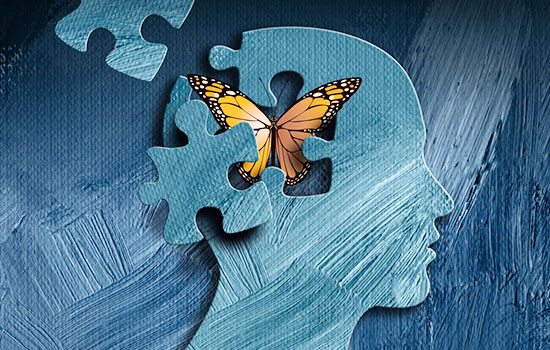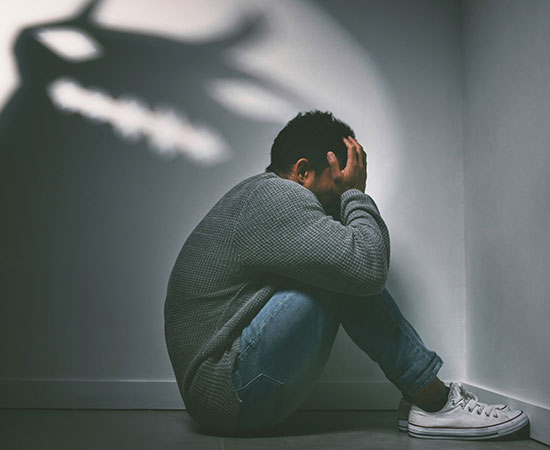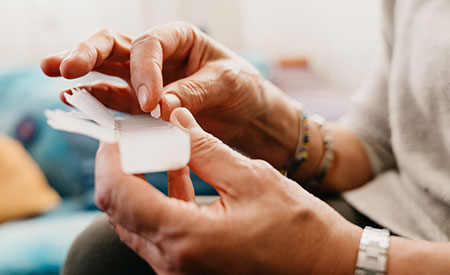- Mumbai, New Delhi, Bangalore
- (+91) 81518 30000
- WhatsApp Now
- contact@vedawellnessworld.com



While the exact causes of BPD are not fully understood, several factors may contribute to its development. These include:
At Veda Rehabilitation and Wellness, we offer comprehensive treatment for individuals with Borderline Personality Disorder (BPD). Our integrated approach incorporates evidence-based therapies, supportive interventions, and holistic modalities to address the complex needs of individuals with BPD.
At Veda Rehabilitation and Wellness, we understand the challenges faced by individuals living with borderline personality disorder (BPD) and are committed to providing comprehensive and compassionate treatment to support their journey towards recovery. Our integrated approach incorporates evidence-based therapies, supportive interventions, and holistic modalities to address the complex needs of individuals with BPD.

Our experienced clinicians specialize in psychotherapeutic approaches tailored to BPD, including Dialectical Behavior Therapy (DBT) and Cognitive Behavioral Therapy (CBT). Through these modalities, clients learn effective coping skills, emotion regulation techniques, and strategies to manage impulsivity and interpersonal difficulties.

Group therapy and family therapy play crucial roles in BPD treatment at Veda. Group sessions provide a supportive environment for individuals to connect with peers, gain insight, and practice interpersonal skills. Family therapy involves loved ones in the treatment process, fostering understanding, communication, and healthy relationships.

For some individuals with BPD, medication may be recommended to alleviate symptoms such as depression, anxiety, or mood instability. Our psychiatric team provides thorough evaluations and personalized medication management to address specific symptoms and optimize overall well-being.

Mindfulness practices and coping skills training are integral components of BPD treatment at Veda. Through mindfulness-based interventions and skills training groups, clients learn to cultivate present-moment awareness, tolerate distress, and regulate emotions effectively.

Veda embraces holistic modalities such as yoga, art therapy, and recreational therapy to complement traditional treatment methods for BPD. These holistic approaches promote self-expression, stress reduction, and overall well-being, enhancing the therapeutic experience and supporting personal growth.

As part of our commitment to comprehensive care, Veda provides thorough aftercare planning to support clients as they transition back into their daily lives. Our team collaborates closely with clients to develop personalized aftercare plans, which may include ongoing therapy, support groups, and community resources to promote sustained recovery.
Phase 1: Comprehensive Mental and Medical Assessments
Clients undergo a thorough orientation followed by comprehensive medical, psychiatric, and nutritional evaluations conducted by expert consultants. These evaluations are designed tofacilitate a comfortable physical detoxification, manage withdrawal symptoms, and provide a foundation for tailored treatment plans. Psychological assessments help our expert psychologists understand each client’s needs, leading to psychoeducation sessions that enhance clients’ understanding of their addiction and initiate various therapeutic techniques.
Phase 2: Psychoeducation and Initial Adjustment
During this phase, clients receive personalized sleep schedules, daily routines, and dietary plans based on their initial assessments. These plans are developed collaboratively to support clients’ physical and mental adjustment. Psychoeducation continues, helping clients understand their addiction and the steps necessary for recovery
Phase 3: Psychotherapy
Stages of Psychotherapy:
Stage 1: Achieving Behavioral Control
In the first phase of therapy, the focus is on stabilizing the patient by addressing and reducing life-threatening behaviors, such as self-harm and suicidal actions. Additionally, this stage targets therapy-interfering behaviors that hinder progress and behaviors that interfere with the quality of life, such as substance abuse. The primary goal is to establish safety and achieve basic stability
Stage 2: Emotional Experiencing
Once the patient has achieved behavioral control, the next phase involves helping them experience and process emotions in a healthier way. This stage addresses PTSD symptoms and facilitates emotional processing, allowing the patient to understand and manage their emotions more effectively.
Stage 3: Building Life Skills
In this phase, the focus shifts to enhancing the patient’s quality of life by setting and working towards personal life goals. This includes improving day-to-day functioning, developing practical skills, and achieving personal aspirations. The aim is to equip the patient with the tools needed to lead a more fulfilling and productive life.
Stage 4: Creating Meaning
The final stage involves developing a sense of completeness and connection. This phase supports the patient in finding deeper meaning in life, which can be achieved through spiritual fulfillment, personal growth, or other avenues of self-discovery. The goal is to help the patient establish a lasting sense of purpose and well-being.
Phase 4: Preparing for Discharge
Therapists work with clients to develop a comprehensive relapse prevention plan and address reality adjustment issues. This ensures that clients are prepared for the outside world and can effectively apply the techniques learned during therapy.
Phase 5: Post-Discharge
Follow-up sessions are scheduled to monitor clients’ progress and provide ongoing support. These sessions are crucial for ensuring long-term recovery and well-being, helping clients maintain the gains achieved during treatment.
Daily Holistic Practices
To support your recovery, we offer daily sessions in:
Additionally, we provide holistic and alternative therapies (available at an additional cost) such as:
Additional Support
We provide various alternatives to support recovery and have a 24/7 center administration team that monitors and manages any additional addictions, helping clients gradually reduce their consumption.
Family and Couple Interventions
Understanding the importance of social support, we offer family and couple interventions during weekends or based on availability to foster understanding and support outside the center